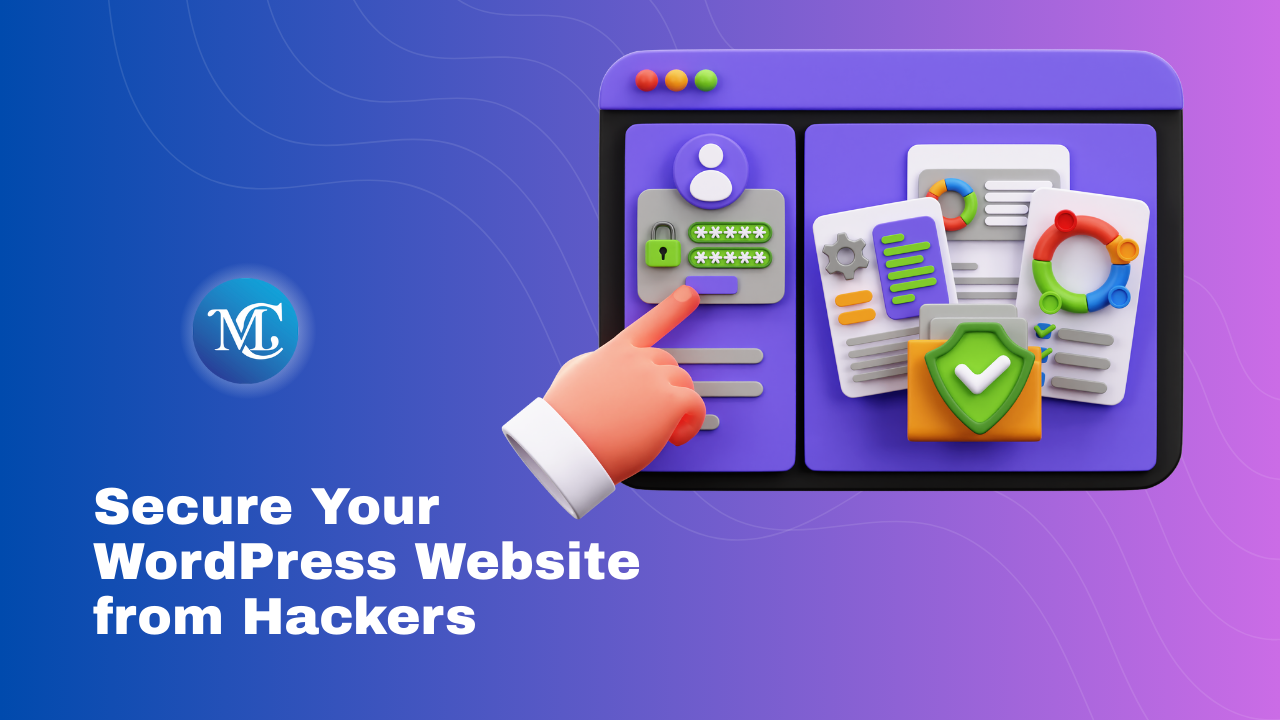How to Secure Your WordPress Website from Hackers?

Are you ready to secure your WordPress website from hackers? A Complete Tutorial
When clients create new websites, our team always prefers that they secure their sites first. Ensuring that WordPress is secure is very important to prevent unwanted users. You can secure your WordPress website using different methods. This blog post will tell you how to protect your personal information and the site by adding our recommended steps.
How To Secure Your WordPress Website from Hackers?
Learn about today’s most common threats to your WordPress website, and tips to secure your WordPress website and stay safe from cyberattacks. Cyber threats are increasing, and WordPress websites are frequent targets due to their popularity. A hacked website can lead to stolen data, loss of credibility, and financial damages.
By implementing security best practices, you can safeguard your website from cybercriminals.
$50/Month Saves $5,000. Get our services today with 7-Day Money-Back Assurance.
Check our WordPress Maintenance Services before disaster strikes and hacked site.
1. Keep WordPress Updated
One of the most important steps in securing your WordPress site is to keep it regularly updated. This includes:
- WordPress Core Updates: Regular updates fix security vulnerabilities.
- Theme and Plugin Updates: Outdated plugins and themes can have security loopholes that hackers exploit.
- PHP Version Updates: Running the latest PHP version improves performance and security.
2. Use Strong Login Credentials
Hackers are guessing usernames and passwords to unlock your WordPress. Strengthen your login security by:
- Use strong passwords with a mix of uppercase letters, numbers, and symbols.
- Change the default ‘admin’ username to something unique.
- Limit login attempts using a plugin like Login Lockdown.
- Enabling two-factor authentication (2FA) adds an extra layer of security.
3. Install a Security Plugin
Security plugins help monitor and protect your website from online threats. Some recommended plugins include:
- Wordfence: Provides a firewall and malware scanner.
- Sucuri Security: Offers website monitoring and malware removal.
- iThemes Security: Strengthens WordPress security with multiple features.
4. Enable a Web Application Firewall (WAF)
A Web Application Firewall (WAF) filters and blocks malicious traffic before it reaches your site. Popular WAF services include:
- Cloudflare
- Sucuri Firewall
- MalCare
5. Backup Your Website Regularly
Regular backups ensure you can restore your site if it gets hacked. Use plugins like:
- UpdraftPlus
- BackupBuddy
- VaultPress (by Jetpack)
Store backups on external cloud storage like Google Drive or Dropbox.
6. Secure Your wp-config.php File
The wp-config.php file contains sensitive information, including database credentials. Secure it by:
- Moving it to a higher-level directory.
- Restricting access using .htaccess rules.
- Change the database table prefixes from ‘wp_’ to something unique.
7. Disable XML-RPC and Directory Browsing
Hackers use XML-RPC for brute force attacks. Disable it using:
- Disable XML-RPC plugin.
- Adding code to .htaccess:
# Block XML-RPC access <Files xmlrpc.php> Order Deny,Allow Deny from all </Files>.
Also, disable directory browsing by adding Options -Indexes to your .htaccess file.
8. Use SSL and HTTPS
SSL (Secure Socket Layer) encrypts data between users and your website. Install an SSL certificate using:
- Let’s Encrypt (free option).
- Cloudflare SSL.
- Premium SSL certificates from hosting providers.
9. Monitor User Activity and Access Levels
Limit access to only trusted users and track their activity:
- Assign roles properly (Admin, Editor, Author, Contributor).
- Use a plugin like WP Activity Log to monitor user actions.
- Regularly audit user accounts and remove inactive ones.
10. Scan for Malware Regularly
Use security plugins or online tools like:
- Google Safe Browsing
- Wordfence Security Scanner
- Sucuri SiteCheck
Schedule regular scans to detect and remove malware before it causes damage.
Tips to Secure Your WordPress Website from Hackers
Securing your WordPress website from hackers is a continuous process. By following these steps—keeping your website updated, using strong login credentials, installing security plugins, enabling a firewall, and conducting regular malware scans—you can significantly reduce the risk of cyberattacks. Prioritize security today and keep your website safe!
Frequently Asked Questions
How do I secure my WordPress website?
Use strong passwords, enable two-factor authentication, install security plugins, keep WordPress updated, and use a secure hosting provider.
Can my WordPress site be hacked?
Yes, if not secured properly. Common risks include weak passwords, outdated plugins, and poor hosting security.
How do I keep my WordPress site private?
Set it to private in Settings > Reading, use password protection for pages, or install a membership plugin.
How do I lock down a WordPress site?
Disable directory browsing, limit login attempts, use security plugins, restrict user roles, and enable SSL.


